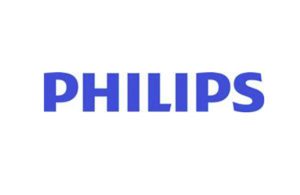 The FDA updated its communications on Philips‘ (NYSE:PHG) major ventilator recall with new data on device reports and patient deaths.
The FDA updated its communications on Philips‘ (NYSE:PHG) major ventilator recall with new data on device reports and patient deaths.
In June 2021, Philips Respironics recalled millions of certain ventilators, bi-level positive airway pressure (BiPAP) and continuous positive airway pressure (CPAP) machines due to potential health risks caused by polyester-based polyurethane (PE-PUR) sound abatement foam breaking down. Foam particles could enter a device’s air pathway, causing a range of potential health problems and toxic, carcinogenic effects for the user.
According to the FDA’s notice, the agency received more than 21,000 medical device reports (MDRs), including 124 reports of death, associated with the PE-PUR foam breakdown or suspected foam breakdown in Philips Respironics’ ventilator devices between April 2021 and April 30, 2022.
Within the MDRs received by FDA — both mandatory reports from Philips and voluntary reports from healthcare professionals, consumers and patients — a range of injuries were reported, including cancer, pneumonia, asthma, other respiratory problems, infection, headache, cough, dyspnea (difficulty breathing), dizziness, nodules, and chest pain.
Philips submitted 30 MDRs between 2011 and April 2021 that they identified as associated with the PE-PUR foam breakdown. Eight of the reports were from the U.S. and there were no reports of patient injury or death within them.
Philips submitted 30 MDRs between 2011-April 2021 that they identified as associated with the PE-PUR foam breakdown. Eight of those reports were from the U.S. There were no reports of patient injury or death among those 30 MDRs. The FDA acknowledged the shortcomings of its MDR surveillance system, saying that they only comprise one of its important postmarket surveillance data sources
The FDA said the MDR system is limited in its effectiveness because the incidence, prevalence or cause of an event can’t typically be determined from the reporting system alone due to the under-reporting of events, inaccuracies in reports, lack of verification that the device caused the reported event and lack of information about the frequency of device use.
Amsterdam-based Philips said last year that it was no longer taking orders of sleep therapy systems as it dealt with the Class I recall, which saw it fall out of sleep therapy market for at least a year. In March, the FDA issued a notification order alerting Philips that its notification efforts on the recall of its ventilators have been inadequate to date.
Last month, the company revealed a Department of Justice subpoena for information related to the recall of its respiratory devices. The subpoena sought “information related to events leading to the Respironics recall.” Phillips said its subsidiaries are cooperating with investigators.
In an update issued on May 2, the FDA’s Center for Devices and Radiological Health (CDRH) proposed an order for Philips to submit a plan for the repair, replacement or refund of the purchase price of the recalled devices manufactured after November 2015.
When the FDA proposed its order to Philips earlier this month, a Philips spokesperson issued the following statement:
“We have been informed by the FDA that they are proposing to issue an order under section 518(b) of the Federal Food, Drug, and Cosmetic Act, in connection with the Philips Respironics recall for certain CPAP, BiPAP and mechanical ventilators. Philips is studying the information and intends to share its views with the FDA. We have been and continue to cooperate with the FDA.
“To date, Philips Respironics has produced a total of 1.1 million replacement devices and repair kits for customers and patients in the US, and aims to complete the vast majority of the repair and replacement program in 2022.”